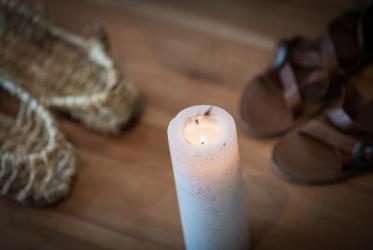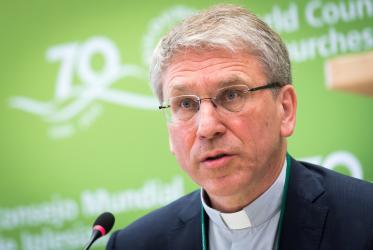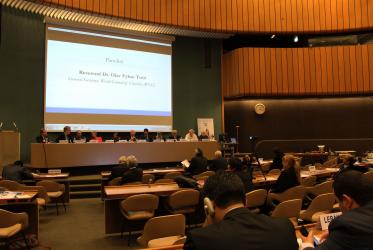Displaying 61 - 80 of 152
20 March 2019
A moment in ‘Time’: an interreligious vision in Erlangen
20 December 2018
All pilgrim routes lead to COP24
11 December 2018
“Love will find a way”
23 August 2018
“Любовь покажет путь”
23 August 2018
#WCC70: A prayer about health and healing
20 July 2018
WCC Executive Committee issues statement on bishop from Philippines
18 November 2017
Christian and Muslim promote spiritual solidarity
14 June 2017
Islam and Christianity: finding the common ground
16 March 2017
In Lebanon, refugees face hardship - but find hope
16 March 2017
“Overcoming economic injustice” vision of WCC’s Athena Peralta
23 February 2017
The child in the manger and the war in Syria
22 December 2016
Strong bridges needed more than ever
21 December 2016














